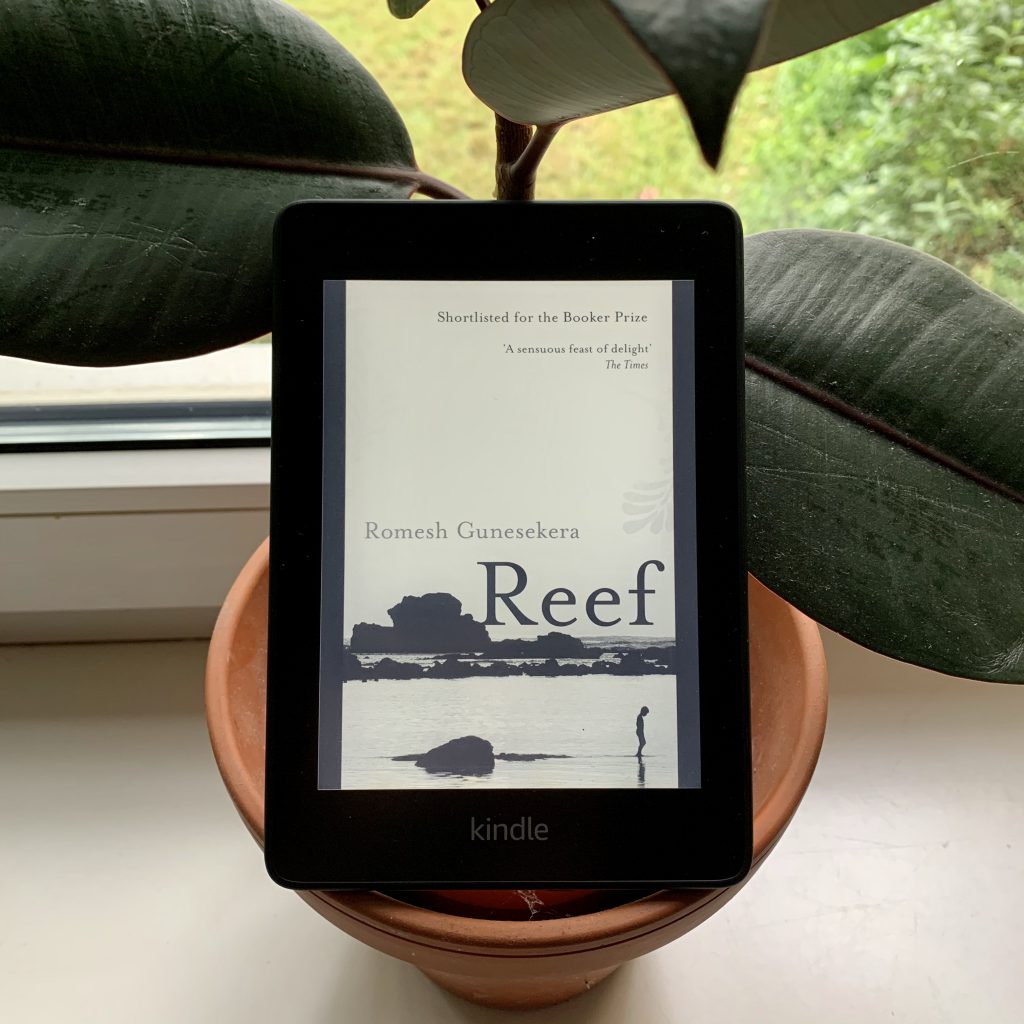Romesh Gunesekera’s novel Reef tells the story of Triton, a young cook who is indentured to Mr. Salgado at 11 years old. His narrative begins on the outskirts of Colombo, Sri Lanka, in 1962, shortly after the failed coup d’état. Mr. Salgado, a marine biologist and member of the Colombo intelligentsia, runs a small government project, seeking to slow beach erosion and reef degradation.
As the narrative progresses, the erosion appears to be an allegory for the impending civil war. From the moment Triton first visits the ocean, he is anxious about its inevitable power: “each wave just a grain of sand closer to washing the life out of us.” The narrator uses similar subtle yet inescapable descriptions to portray the unfolding political turmoil.
Mr. Salgado’s project takes the backburner after he starts dating Nili, a front desk hotel manager, who loves hosting parties and consuming cake by the kilo. The two are an odd pair—Mr. Salgado, reserved and reflective and Nili, outgoing and insatiable. The narrative launches into a series of dinner parties that Triton crafts; the party discourse reminiscent of The Sun Also Rises, if Hemingway knew how to write prose.
Gunesekera uses powerfully descriptive language to explain Triton and Mr. Salgado’s little world at the end of the lane. Throughout the story, it almost seems the two are contemplating philosophical points together. In reality, the two are both muted characters among dinner party guests and dishes—Triton, a servant and Salgado, a captive in his own mind.
In a New York Times interview, novelist Chimamanda Ngozi Adichie argues,“Reef [is] a modern classic that should be read as a study in that maxim about what literature should do: instruct and delight.” When I first finished the novel, I entirely agreed with the story’s ability to delight. The descriptions are vivid, and each chapter acts as a mini anecdote within the larger narrative. Still, I was left wanting a bit more instruction. There were moments I nearly begged Triton and Salgado to become more aware of their political and class positionality.
At one of Salgado’s parties, Triton becomes dissatisfied with the conversation and steps outside. When a guest shouts for Triton, wanting another beer, Triton quietly refuses to move, contemplating a conversation he had with a young Marxist, Wijetunga, who tells him: “We have to destroy in order to create. Understand? Like the sea. Whatever it destroys, it uses to grow something better.” Triton seems to stand on a precipice, about to take action. In the end, his private contemplations are as revolutionary as he manages to muster; the section concludes: “I walked down to the main road. I watched the traffic go from nowhere to nowhere. I could feel the ocean pressing around us.” The inescapable power of the sea again depicted as eminent as the political turmoil.
Although Gunesekera weaves the larger civic unrest into his narrative, the instructive emphasis is not necessarily political, but rather preservational. The novel acts as a physical manifestation of Mr. Salgado’s conservation project and philosophy. He explains to Triton:
“The urge to build, to transform nature, to make something out of nothing is universal. But to conserve, to protect, to care for the past is something we have to learn.”
Gunesekera provides readers with a lens into Sri Lanka’s past, a snapshot of a moment, without a contemporary political agenda.
Stats
Title: Reef
Author: Romesh Gunesekera
Publication Year: 2011
Pages: 197

